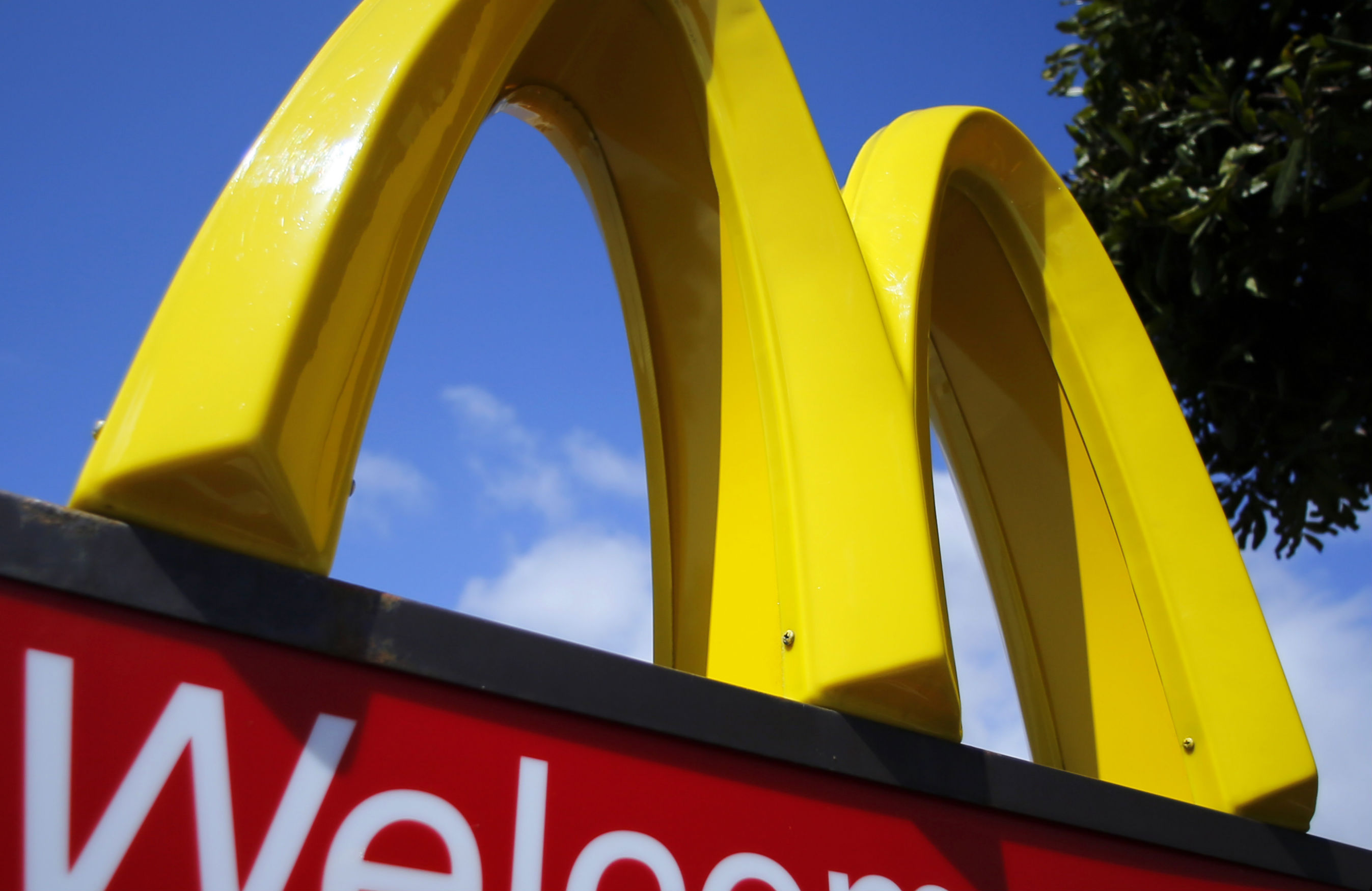
Reuters/Mike Blake
Starting today, workers in seven cities will begin the largest fast food worker mobilization in US history. Staff at chains including McDonald’s, Burger King, KFC and Wendy’s will reportedly walk out in New York, Chicago, Detroit, Milwaukee, St. Louis, Kansas City and Flint, Michigan.
Workers are calling on fast food restaurants to raise the minimum wage to $15 per hour. Currently, the average pay in New York is $8.25 per hour and the minimum wage is $7.25.
“I might be doing the work of three people” due to under-staffing, McDonald’s employee Kareem Starks told Salon’s Josh Eidelson, “but still getting paid one wage.” Starks, a 30-year-old former Parks Department employee, said it’s “been hard trying to live off the minimum wage, $7.25, and support my two kids plus pay rent.”
Workers hope to draw attention to a range of issues from low wages to wage theft to McDonald’s recently released budget calculator that insulted and angered many employees struggling to survive on fast food wages.
Jonathan Westin, who directs New York’s Fast Food Forward campaign, told Salon he doubts that national TV outlets would have lingered on the budget story if workers hadn’t forced a debate about the industry by repeatedly going on strike. “The more and more workers continue to take action and continue to publicize their fight,” said Westin, “the more and more it starts to get at the fast food industry’s biggest asset, which is their name brand. And I think that’s what we’re beginning to see in a very real way.”
The action is being organized by Fast Food Forward, a movement of employees from fast food outliers in New York City focused on raising wages and increasing workers’ rights.
The group released the following statement:
In America, people who work hard should be able to afford basic necessities like groceries, rent, childcare and transportation. While fast food corporations reap the benefits of record profits, workers are barely getting by—many are forced to be on public assistance despite having a job. Raising pay for fast food workers will benefit workers and strengthen the overall economy.
Popular
"swipe left below to view more authors"Swipe →
The website says that the $11,000 average annual salary of fast food workers in New York compares to a $25,000 average daily salary of fast food firm chief executives.
Westin told New York radio station 1010 WINS that fast food workers are not paid a living wage despite having to raise families.
“A lot of the workers are living in poverty, you know, not being able to afford to put food on the table or take the train to work,” he said. “The workers are striking over the fact that they can’t continue to maintain their families on the wages they’re being paid in the fast food industry.”
The campaign to raise the minimum wage in New York City comes at a time of increasing poverty and public housing cuts.
A network of local community groups, clergy and unions, including the Service Employees International Union (SEIU), are backing the strike.
“SEIU members, like all service-sector workers, are worse off when large fast-food and retail companies are able to hold down wages and push benefit standards for working people,” Mary Kay Henry, president of the Service Employees International Union, told The Washington Post.
Robert Wilson Jr., 25, who works at a McDonald’s in downtown Chicago, told The Washington Post he makes $8.60 a hour after seven years on the job. He said a previous walkout in April earned workers some “small victories,” including more hours and small raises.
“I’m not really concerned about losing my job,” Wilson said. “If I don’t do anything, I am in a lose-lose situation. I can still get fired at any time.”
Thus far, some of the country’s largest businesses have rejected the idea of raising wages. This month, Walmart threatened to freeze plans to build three stories in Washington and reevalute three stores already under construction after the DC Council passed a bill requiring large retailers to pay its workers a “living wage” of at least $12.50 an hour.
“I know you’re tired of suffering,” KFC employee Naquasia LeGrand told fellow workers gathered with clergy and politicians at a rally last Wednesday announcing that New York City worker-activists had voted to strike this week. “I don’t want to see the next generation suffering and suffering. I don’t want my kids suffering. I want to make sure they have a better future than I do.” Looking out on a crowd of about 150 at the entrance to Brooklyn’s Prospect Park, LeGrand added, “So if I want that to happen, I need you guys to stand with me just as long as I’m standing with you.”
Last week, California warehouse workers who move Walmart baggage went on strike, becoming the latest participants in a wave of Walmart supply chain strikes.


